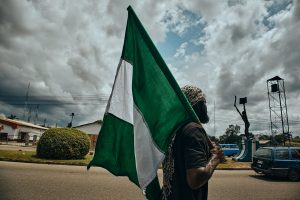Poultry production refers to the practice of rearing domestic birds, whose demand in Nigeria is driven by the growing population, urbanization, changing consumer preferences, technology, and an increasing awareness of the health benefits of poultry products. It is not uncommon to see a mass of small to medium-scale poultry bird production in Nigeria. Speaking of common experiences, households keep boxes of cages fitted with stands within but behind the house. Shop owners who have opportunities to domesticate poultry breeds equally do so. In the next paragraphs, we will look at poultry production as an agri-business in Nigeria.
In Nigeria, the poultry industry is well established and organized with about 85 million Nigerians involved in its production processes.
The poultry production business in Nigeria is quite robust, as the country is considerably the largest annual day-old chick and egg production. As well as the second-largest chicken population in Africa. Domestic production in Nigeria’s poultry industry is believed to address roughly 50 percent of the demand for poultry products. The market trend of poultry business in Nigeria x-rays the sociological reality of the industry as it applies to human exploration of the industry. Poultry with other protein meals is to account for 14% of Nigeria’s meat consumption in 2021. It is almost impossible to experience open outlets busied in selling cooked consumables with icing the holy appearance of meat across the distinct classes of Nigerian dishes.
The demand is responded to, through the cultivation of three breeds of poultry birds in Nigeria. Layers which are majorly egg-producing breeds, are birds that lay eggs within their sixteen to twenty weeks of age, continuing till about 78 weeks of their existence is almost rounded. The layers breed is of various variations – Leghorn, Isa Brown, Black Ario (dominantly black, Lohmann etc – which are commonly seen.
Boilers, which are meat-producing breeds are birds reared primarily for the production of meat. Boilers are the highest inspiring breed of birds reared because they weigh about 1.8 to 2.2kg within 6 to 8 weeks of age. Its commonly seen variations include Arbor Acre, Ross 308, and Marshal Cobb. etc.
The third breed is the dual-purpose poultry breed, which is reared for both meat and egg production. Its common breeds include the famous Noilers, FUNAAB Alpha, Hampshire, Rhode Island Red, Plymouth, and so forth.

As poultry production continues to soar, it is not devoided of challenges. The high cost of inputs such as feed, drugs, vaccines, and equipment is one bitter challenge of the industry. Cost by widespread supply chain shortages of inputs, transportation bottlenecks, prices of other commodities of related inputs, and price of term inputs are substantially connected with general inflation. Rising input prices put the risk of further shortages of food on the line.
Poor management and the unavailability of production skills are also other notable challenges. The inability to have the requisite knowledge to effect adequate care for birds and the entire business of poultry production may often lead to depression on the side of the farmer and of course a loss to a world whose continued existence depends on it. The absence of regular skill acquisition and capacity-building network opportunities, whether with business peers or stakeholders delink poultry farmers from contemporary knowledge of approaches to farming practices.
Coming also as a challenge is the lack of access to finance. Starting a poultry business demands beyond the conception of an idea or design. Its actualization requires that capital is available to bring into reality the abstract conception. Not only does this affect poultry incubators (converts who have recently discovered an interest in poultry production), but more so already established practitioners. In solving the pivotal problem of finance, poultry farmers must learn how to start low and grow big. Poultry owners must learn how to commit their self to little drops of personal savings.
In some other cases, the formation of a duster or cooperative group drive to earn more easy funds or support is another employable remedy. This however will require that good technical know-how to get seamless access to funds from the finance houses is demonstrated.
The unanticipated discovery of disease in poultry production is a divesting experience. The undesirable outbreak of disease may lead to the loss of birds and a chain-like loss of life for the poultry farmer. Especially after investing heavily with all that labor crumbling beneath. This loss, either as in death or stunted growth, can be cautioned through the stocking of improved breeds gotten from a reliable source, as well as adherence to standard production practices are recommendations that suggest a way out of the pestilence of disease.
The unavailability of markets, which may lead to an economic glut, is another posed challenge. Difficult marketing skills or the paucity of markets may ultimately lead to discouragement on the side of the poultry farmer. Resolving this would require embarking on marketing strategies – branding, online marketing, and surveying the market, among others – as suggested solutions.
Learning for Lasting Peace
The sixth International Day of Education, January 24th, 2024 commemoration of the transformative impact of education was tagged ‘Learning for Lasting Peace’. The theme is spot on as an imminent address to the waiting list of challenges that the world is enveloped around. It is no gainsaying that all regions of the world – across continents – are faced with a complex set of concerns. From the after-effects of the Covid-19 pandemic and the bites of the war in Ukraine to climate disasters – which have become acute, the dire need for peace, more importantly, a lasting one, is in every respect desirable.
Narrowing the discourse to the African continent and inwardly, crises as key issues are posed to all regions and inhabitants of the African hinterland today. According to data from the World Health Organization in August 2023, 2.3 million people were crowded out across the Eastern region due to the intensity of drought. Consequent to the drought, floods in such places as Kenya, Ethiopia, and other drought-stricken areas of Eastern Africa, with cyclone devastation wreaked a series of havoc. But not just about climate.
The high cost of living within the African continent has been high and widespread, with a share of 35.1 percent, according to 2019 Statista data, attributed to a share of people living under the extreme poverty line of 2.15 US dollars per day, in sub-Saharan Africa. As a result, many Africans indulge in covert practices to ensure their daily staying alive. It thus appears as if the contestation between economics and human development progress in Africa is reversed. Added to the above are such issues like coups, continuing conflicts in Ethiopia, and so on, which derides peace in Africa.
It is in the face of this queue of crises that the tool of education or as an institution is made a more strategic, set of processes designed to transmit knowledge and skills across human trans generations. Today, in the world, education is regarded as vital. Its regard, although not customary, is hinged on the fact that the greatest transformation occurring in the world is the product of the enlightenment of millions of human beings. Through education, humans become more aware of their physical and social environment.
The idea of the term ‘education’ should rather be conceived more as the consumption of knowledge and considerable where it is gained. Since humans cannot live in a vacuum, but must belong to one or more groups, having specific functions to perform to ensure the continued, progressive existence of the society. Incontextible that rise specific social structures are implicitly charged with carrying out various functions in the society, their function seemingly can be considered allotted. The religious body as a structure has its designated responsibility, and the school does too, same as in the family, all of which including other structures, prepare individuals in the society to cope with future exigencies.
It is on this note, chiefly, that education performs several functions, which keep humans encouraged to strive continually for their advancement. With the right education adequately consumed, an individual becomes fit into society, as he or she becomes equipped with the needed skills for survival. It does this by preparing the mind of an individual by the recognized acceptable standard of behavior. While education helps establish social relationships or capacity for relatedness through the give and take of peer group interactions, its inalienable ability to instill value is highly custodial agencies but not limited to schools, and peer groups, whether or not it is explicitly recognized.
On the other hand, constantly welling up, comes the feeling of delight and wonder at the intricacy, fascination, or sheer beauty of what has been discovered. With education, people can be used people can be enjoyed. To keep up in the technological race made possible by the intellectual rebirth of humanity, it is essential; that man must utilize skills and knowledge in practical ways. With education comes the power to cope, which is the minimum everyone needs. The power to embrace lasting peace, which anything further is a luxury we cannot afford.
Education is today set in a series of molds labeled as curriculum and syllabus. The making of this Western culture, which over many centuries has become a traditional form, pours in an undeniable impression of personal understanding or social habits formed. Whether community education (gained as a growing member of society) or special education (bookish and theoretical education), the inwardness of the human cognitive is made unlettered.
Growing into a fully personal person is not synonymous with taking a college course or getting an academic qualification. Learning therefore is a bit-by-bit multi-layered word that is timeless and continues, whose remote or immediate return is power. Power for individuals to live their lives in peace, while also contributing to it. Power to make a significant change in the world, however big or small. Power to be active in serving other people through making, doing, solving problems, leading or following. Power to receive and return love, power to commit oneself to long-term causes and loyalties, creating positivity’s out of experience and knowledge.






